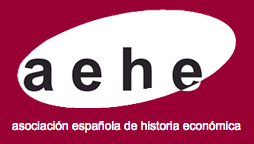The economic consequences of Mr. Volpi: An analysis of “quota 90”
DOI:
https://doi.org/10.33231/j.ihe.2024.03.001Keywords:
Quota 90, Fascism, Fixed exchange regime, Gold Exchange Standard, N14, E52, C32Abstract
The revaluation of the lira against the pound, the so-called “quota 90”, was a major economic policy decision taken by the fascist government in 1926. The economic history literature has seen this policy as the domestic implementation of the return to the Gold Exchange Standard, which characterized the interwar period, with relatively limited economic consequences. We analyze the effects of “quota 90” through a Vector Error Correction Model and find that the economic cost in terms of output was limited. Granger-causality tests point toward wages reacting to changes in the terms of trade, which is consistent with the historical evidence of wage moderation as a result of labor market reforms that tilted the balance in favor of the firms.
Downloads
Downloads
Published
How to Cite
Issue
Section
License
Copyright (c) 2024 Davide Bernardi, Roberto Ricciuti

This work is licensed under a Creative Commons Attribution-NonCommercial-NoDerivatives 4.0 International License.
Aquellos autores/as que tengan publicaciones con esta revista, aceptan los términos siguientes
- Los autores/as conservarán sus derechos de autor y garantizarán a la revista el derecho de primera publicación de su obra, el cuál estará simultáneamente sujeto a la Licencia de reconocimiento de Creative Commons Reconocimiento-No comercial-Sin obra derivada 4.0 Internacional que permite a terceros compartir la obra siempre que se indique su autor y su primera publicación esta revista, y no permite hacer uso comercial de la misma ni tampoco obras derivadas.
- Los autores/as podrán adoptar otros acuerdos de licencia no exclusiva de distribución de la versión de la obra publicada (p. ej.: depositarla en un archivo telemático institucional o publicarla en un volumen monográfico) siempre que se indique la publicación inicial en esta revista.
Plagio y fraude científico
La publicación de un trabajo que atente contra los derechos de propiedad intelectual será responsabilidad de los autores/as, que serán los que asuman los conflictos que pudieran tener lugar por razones de derechos de autor. Los conflictos más importantes pueden darse por la comisión de plagios y fraudes científicos.
Se entiende por plagio:
- Presentar el trabajo ajeno como propio.
- Adoptar palabras o ideas de otros autores sin el debido reconocimiento.
- No emplear las comillas u otro formato distintivo en una cita literal.
- Dar información incorrecta sobre la verdadera fuente de una cita.
- El parafraseo de una fuente sin mencionar la fuente.
- El parafraseo abusivo, incluso si se menciona la fuente.
Las prácticas constitutivas de fraude científico son las siguientes:
- Fabricación, falsificación u omisión de datos y plagio.
- Publicación duplicada.
- Conflictos de autoría.





